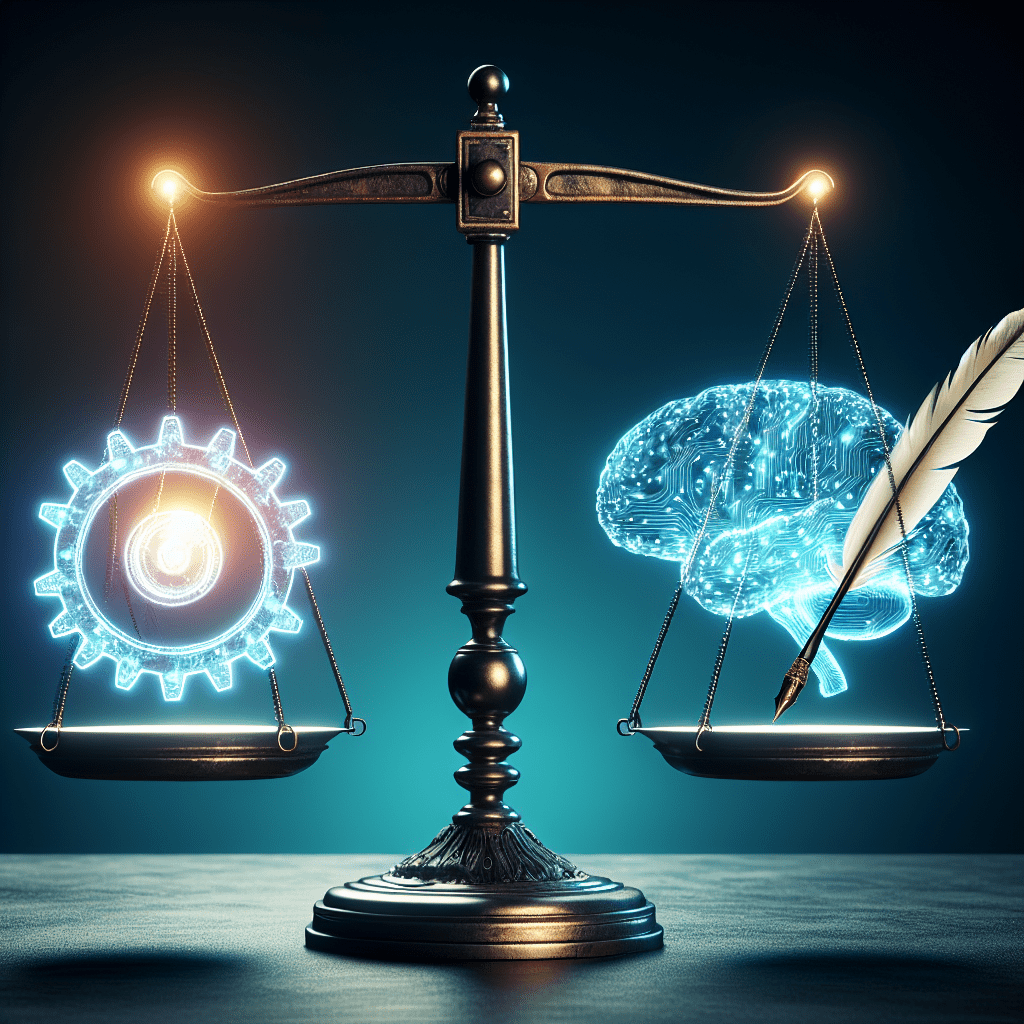Artificial Intelligence (AI) technology has been rapidly advancing in recent years, creating unprecedented opportunities for innovation and growth in various industries. From self-driving cars to virtual assistants, AI has the potential to revolutionize the way we live and work. However, with this rapid advancement comes the challenge of balancing innovation with ethical considerations.
One of the key ethical concerns surrounding AI development is the impact it will have on jobs and the economy. As AI becomes more sophisticated, there is a fear that it will replace human workers, leading to widespread job displacement and inequality. This raises important questions about the ethical responsibilities of companies and governments in managing the transition to a more automated workforce.
Another ethical concern is the potential for bias in AI algorithms. AI systems are only as good as the data they are trained on, and if that data is biased or incomplete, it can lead to discriminatory outcomes. For example, AI-powered hiring systems have been shown to favor male candidates over female candidates, reflecting the biases of the data used to train the algorithms. This raises important questions about the fairness and accountability of AI systems, and the need for transparency in their development and deployment.
In addition to these concerns, there are also broader ethical questions about the impact of AI on society and human well-being. For example, there are concerns about the potential for AI to be used for malicious purposes, such as surveillance or social control. There are also concerns about the impact of AI on privacy, as increasingly sophisticated AI systems are able to analyze and predict human behavior with greater accuracy.
Balancing innovation with ethics in AI development requires a multi-faceted approach. Companies and developers must be mindful of the potential ethical implications of their technology, and prioritize transparency, accountability, and fairness in their decision-making processes. This includes ensuring that AI systems are developed and deployed in a way that is respectful of privacy, avoids bias, and promotes human welfare.
Governments also have a role to play in regulating AI development and deployment to ensure that it is done in a way that is ethical and aligns with societal values. This may involve creating new regulations and guidelines for AI development, as well as investing in education and training programs to help workers transition to a more automated workforce.
Ultimately, the challenge of balancing innovation with ethics in AI development requires a thoughtful and collaborative approach from all stakeholders involved. By prioritizing ethical considerations alongside technological advancement, we can ensure that AI technology is developed and deployed in a way that benefits society as a whole.


